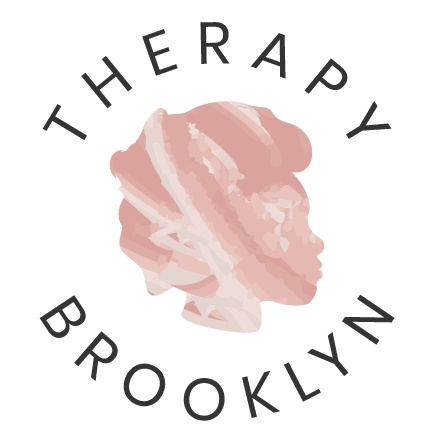The Overlooked Signs of Postpartum Anxiety and How Therapy Can Help
The arrival of a baby can bring moments of wonder, closeness, and profound change. But alongside those experiences, many new parents quietly struggle with worry that feels impossible to turn off. If you find yourself constantly on edge or bracing for something bad to happen, you may be experiencing postpartum anxiety.
While postpartum depression has (rightfully) become part of the public conversation, postpartum anxiety often remains less visible—even though it affects up to 20% of new mothers and birthing parents (Fairbrother et al., 2016).
At Therapy Brooklyn, we work with many parents who didn’t recognize their symptoms as anxiety because they didn’t “look” anxious in the stereotypical ways. This article will help you understand the subtler signs, why they happen, and how therapy can support you in feeling more grounded.
What Is Postpartum Anxiety?
Postpartum anxiety refers to excessive worry, fear, or agitation that begins in pregnancy or after birth. Unlike the natural concerns all parents have, postpartum anxiety can be persistent, intrusive, and physically exhausting.
Many parents describe it as feeling like their mind “won’t stop,” even when they logically know their baby is safe.
It’s important to know that postpartum anxiety is common, treatable, and not a reflection of your ability to parent.
6 Signs of Postpartum Anxiety You Might Overlook
If you’re wondering whether what you’re feeling is more than typical new-parent stress, here are some signs to consider:
1. Intrusive Thoughts
Recurring, unwanted thoughts or images of something bad happening to your baby or yourself. These thoughts can feel distressing and may make you question your worthiness as a parent.
Example: Visualizing the baby falling or fearing you’ll accidentally harm them.
This does not mean you will act on these thoughts. They are a symptom of anxiety, not intent.
2. Physical Symptoms
Anxiety often shows up in the body. Common experiences include:
Heart palpitations
Tightness in the chest
Nausea or dizziness
Tense muscles
These sensations can be mistaken for medical issues, adding to fear and overwhelm.
3. Hypervigilance
Feeling you must be constantly alert or “on guard.” You may:
Check repeatedly to see if your baby is breathing
Struggle to sleep even when your baby is resting
Avoid leaving your baby with trusted partners or family
This heightened state can be exhausting over time.
4. Irritability and Anger
While anxiety is often described as fear, it can also appear as irritability, frustration, or anger—especially when you feel overstimulated or unsupported.
5. Difficulty Making Decisions
Ruminating over small choices—what to feed your baby, how long to let them sleep—can feel paralyzing. This indecision is often rooted in fear of doing something “wrong.”
6. Avoidance
Avoiding situations you perceive as risky—like driving with your baby or going out in public—can be another sign of anxiety rather than caution alone.
Why Does Postpartum Anxiety Happen?
Several factors can contribute to postpartum anxiety, including:
Hormonal changes after pregnancy and birth
Sleep deprivation
A personal or family history of anxiety
Traumatic birth experiences
Social isolation or lack of support
Pressure to be a “perfect” parent
Importantly, none of these factors are your fault. They are part of a complex set of influences that can be navigated with compassionate care and professional support.
How Therapy Can Help
Therapy offers a confidential, nonjudgmental space to:
Understand and normalize your experience
Learn strategies to reduce intrusive thoughts
Practice grounding techniques to manage physical symptoms
Rebuild confidence in your parenting abilities
Develop a sustainable support system
Evidence-based approaches like Cognitive Behavioral Therapy (CBT), mindfulness-based interventions, and psycho-education are effective in treating postpartum anxiety (Dennis et al., 2013).
At Therapy Brooklyn, we specialize in working with new parents: including those who identify as queer, trans, or part of marginalized communities who want to feel more like themselves again.
You Are Not Alone
If you recognize yourself in any of these signs, know this: you are not failing, and you are not alone. Postpartum anxiety is treatable, and help is available.
Schedule a Consultation
If you’d like support navigating this season, reach out to schedule a free consultation. We’re here to help you move from constant worry to a greater sense of calm and connection.
References:
Fairbrother, N., Young, A. H., Janssen, P., Antony, M. M., & Tucker, E. (2016). Perinatal anxiety disorder prevalence and incidence. Archives of Women's Mental Health, 19(3), 393–400. https://doi.org/10.1007/s00737-015-0598-6
Dennis, C.-L., Falah-Hassani, K., & Shiri, R. (2013). Prevalence of antenatal and postnatal anxiety. The British Journal of Psychiatry, 204(5), 340–347. https://doi.org/10.1192/bjp.bp.112.111336
